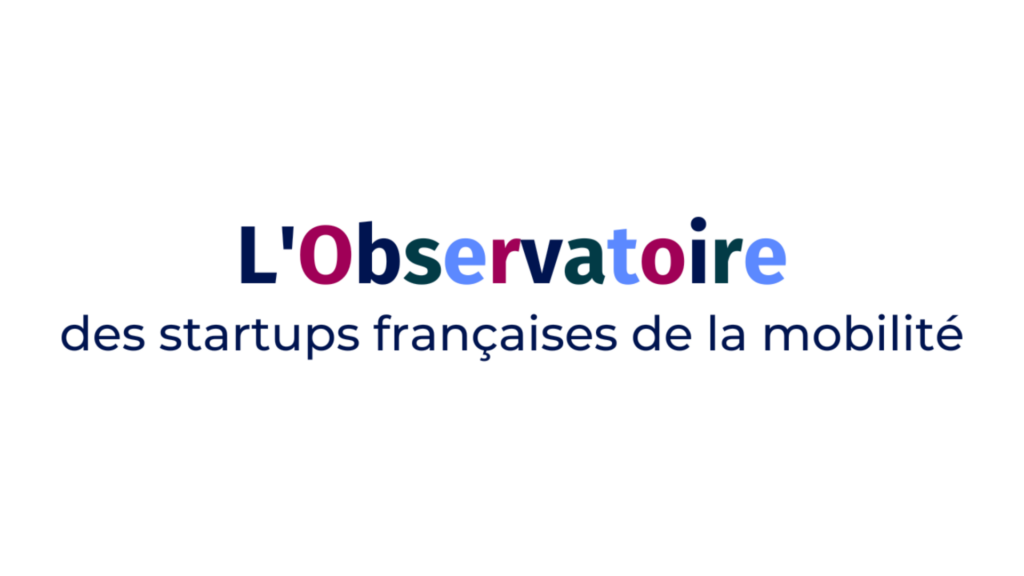
The Moove Lab and Roland Berger unveil the results of the second edition of the Observatoire des startups françaises de la mobilité.

Study Methodology
The goal of the Observatory is to analyze innovation trends in the French mobility and transport sectors, based on startup funding data between 2015 and 2024.
- Two scopes of analysis:
- Transport sector (movement of people and goods by land, sea, or air)
- Daily mobility and automotive services (narrower scope)
- Main data sources:
- Dealroom.co database (as of March 4, 2024)
- Analyses by MOBILIANS, Via ID and Roland Berger
- Questionnaire (90+ responses) and 20+ expert interviews
- Data analyzed:
- 1,055 startup funding rounds, including 350 in the mobility segment
- Interpreted by MOBILIANS, Via ID and Roland Berger
Key figures:
- €1.2 billion raised in 2024 by startups in the transport sector: lower than in 2022 and 2023 (two record years), but higher than in 2019, 2020 and 2021 — a sign of a long-term positive trend.
- Transport remained in the Top 5 most funded sectors in France in 2024.
- 57% of investments were concentrated in the Île-de-France region.
- The energy distribution segment confirmed its resilience.
- France maintained its position as the second-largest transport startup ecosystem in Europe, ahead of Germany and behind the UK.
- The mobility sector proved more resilient than transport, with funding values up +6%, despite fewer transactions, thanks to several large late-stage rounds.
An expected correction after two exceptional years
Following record years in 2022 and 2023, the transport sector adjusted in 2024, with funding stabilizing at €1.2 billion (-38%), still well above pre-2022 levels. The number of deals also declined (-31%), but transport remained one of the most financed sectors.
Île-de-France accounted for 57% of total funding. Though surpassed by Nouvelle-Aquitaine in 2024, Auvergne-Rhône-Alpes remains the second most-funded region since 2015. Occitanie and Brittany also recorded notable performances.
The contraction in French transport startup funding mirrors the European trend (-38% vs. -39%). France also held its #2 spot in Europe, ahead of Germany, behind the UK.
In contrast, the mobility sector showed greater resilience, with a +6% increase in total funding, despite a lower number of transactions, driven by several exceptional late-stage rounds.
This slowdown reflects an uncertain economic, political and regulatory environment (both in France and Europe), combined with the challenges of industrial startups, the maturity of certain segments now funded by other actors, and the end of the innovation cycle around new mobilities. Nevertheless, we’re confident in the sector’s outlook — driven by AI, which finds fertile ground in mobility, decarbonization as a shared priority, and sovereignty challenges that support deeptech and industrial innovation.
A market in transformation
Funding dynamics in 2024 varied by startup maturity stage. In transport, early stage (≤ €15M) and growth stage (€15–40M) rounds declined -33% and -17% in value, respectively. Deal volume also decreased, but activity remained significant — showing continued investor interest despite a more selective environment. Late stage deals (> €40M) dropped -44% in value, but the number of deals remained steady compared to 2023, reflecting a concentration of funding on well-established players.
In the mobility sector, early stage rounds returned to their 2019 funding levels, with volume stable despite a decline from 2023. Growth stage saw the sharpest drop (-59% in value, -57% in volume), underscoring how difficult it remains to scale. On the flip side, late stage funding surged +68%, with several rounds exceeding €100M — proof of the sector’s maturity and the appeal of major projects.
Bpifrance and EIT Urban Mobility remained the most active investors, reaffirming their commitment to transport and mobility startups.
Although the number of deals declined overall, funding amounts remained substantial — illustrating a more selective investor strategy. They appear increasingly demanding, looking for projects closer to a clear path to profitability
Electrification, circularity, micromobility: three pillars of a shifting ecosystem
Electrification has remained a core focus in recent years. In 2024, investment shifted toward charging and hydrogen infrastructure to support the scaling-up of electric vehicles.
Electrification is still a structural priority. In 2024, funding focused on infrastructure — a key enabler for scaling up EV and hydrogen adoption. 2025 will be pivotal: it’s time to support behavior change and stimulate EV demand
The circular economy segment demonstrated resilience amid overall market contraction. While total funding fell, the number of deals slightly increased, reflecting continued investor interest in sustainable and regulation-driven innovations.
The micromobility segment posted a second consecutive year of decline (-54%), yet early stage funding showed more stability (-26%), with a nearly steady number of deals. This suggests persistent entrepreneurial momentum, despite post-COVID normalization after the 2022–2023 bike boom.
The rise of artificial intelligence in mobility and transport is also a promising signal. While no major funding rounds occurred in 2024, investor interest is strong — and the topic is expected to surface in upcoming deals.
Téléchargez l’Observatoire des startups françaises de la mobilité 2025
"*" indicates required fields

